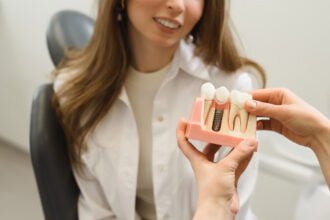 When my daughter Casey was born with nail-patella syndrome (NPS), the orthopedic surgeon said she would never climb stairs.
When my daughter Casey was born with nail-patella syndrome (NPS), the orthopedic surgeon said she would never climb stairs.
 When my daughter Casey was born with nail-patella syndrome (NPS), the orthopedic surgeon said she would never climb stairs.
When my daughter Casey was born with nail-patella syndrome (NPS), the orthopedic surgeon said she would never climb stairs.
What is a parent to do when confronted with information like this? How do you cope when you’re told that your child has a debilitating condition that will affect them for their whole life? This was a watershed in my life; I was already the mother of 2 boys, but Casey’s diagnosis marked the beginning of my career as a caregiver.
The Most Active Advocates in Healthcare
To fully understand why caregivers play such a crucial role in the rare disease world, we must consider the numbers. Eighty percent of all rare diseases are genetic, and 50% of all people affected by rare diseases are children. The most powerful advocates that these children have are their parents.
One of the most important jobs a caregiver has is facilitating conversation with healthcare professionals. With rare diseases, medical specialists are often unable to communicate between one another due to a lack of common understanding of a disorder. There is simply not enough information and not enough awareness. Because of this, caregivers are often the ones who initiate the information exchange by conducting their own research, sharing their findings, and combining their own knowledge with the expertise of a healthcare professional.
There are only about 5 doctors in the country who are experts in NPS. I would never go in to talk to a new doctor who was not 1 of those 5 and expect them to be an expert on NPS. I would bring my own research and we would have a different kind of conversation. It’s more collaborative, more of a brainstorm. The traditional relationship between doctors and patients or caregivers is more of a one way street, but in rare, the exchange of ideas has to flow in both directions.
Caregivers Are Self-Made Experts
It’s time for pharma companies to reach out to caregivers and involve them in the process of developing new treatments. Caregivers are already out there doing their own research, starting foundations, and raising funds for new treatments. When it comes to rare diseases, caregivers make themselves experts in areas where there are very few or no experts. They possess distinctive insights of the unmet needs in the patient community. Caregivers have the potential to make valuable contributions at every step in the development of a new drug, from clinical trial recruiting and onward.
In rare, you have to take control of your own health or your child’s health, and I think that’s representative of how healthcare as a whole is changing. Everyone is going to have to take more control of their health going forward. If you do take control of your own healthcare, you can have outcomes that you never imagined. No one can tell you what your limits are.
Just as the orthopedic surgeon predicted, Casey has struggled with stairs for most of her life. Last summer, we enrolled her in a martial arts program because we thought it would be a good individual activity to help her build strength. Then, 6 months into the program, Casey shocked us all by proclaiming “Hey Mom, watch this,” and RAN up the stairs for the first time.
It just goes to show that you can’t let a poor prognosis hold you back. Improving healthcare is about grit and perseverance. It’s about patients and caregivers getting it done together.









